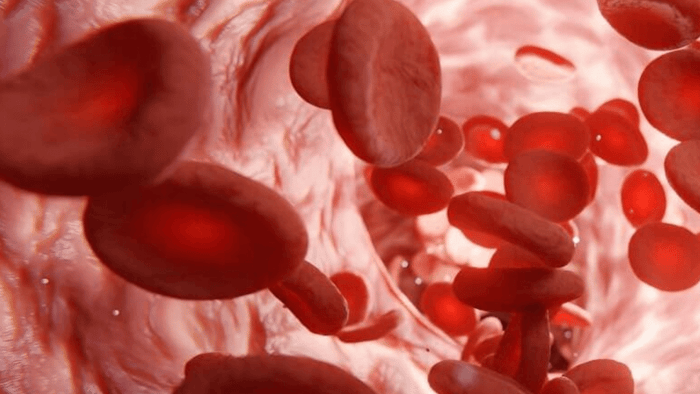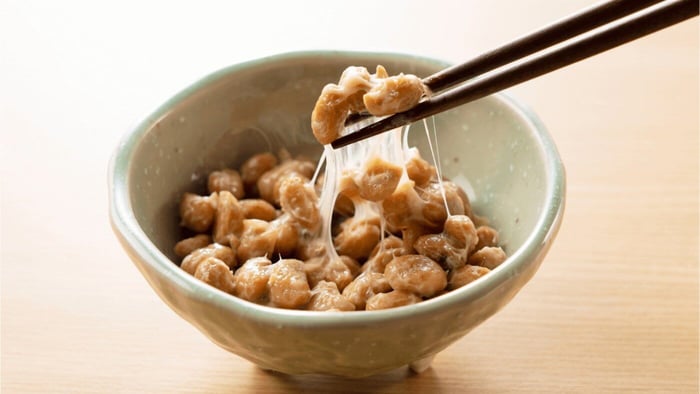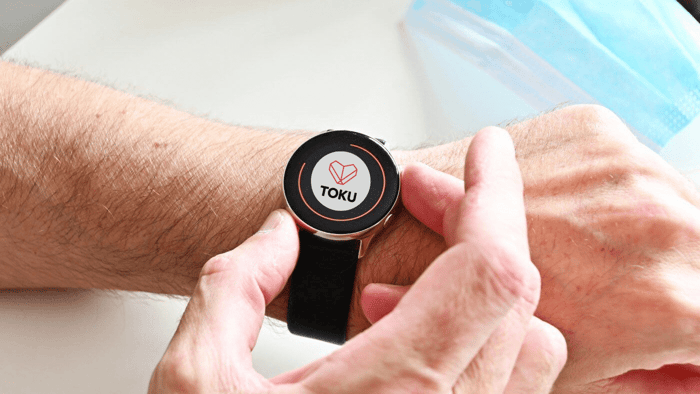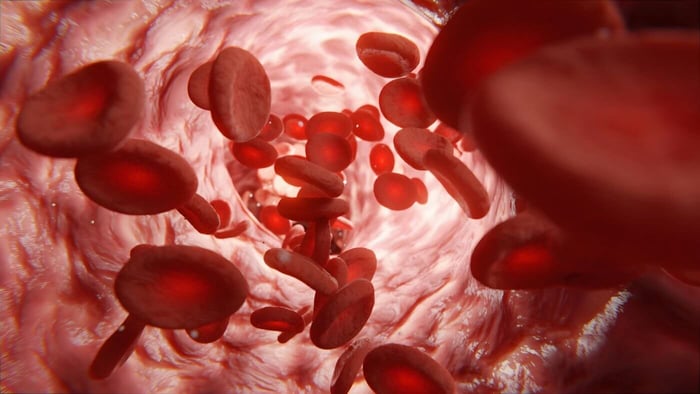Table of Contents
When it comes to heart disease risk, cholesterol gets a lot of attention. While keeping it balanced is important, it doesn’t tell the whole story. What about nattokinase for cholesterol?
Inflammation, blood vessel health, and circulation are just as important. Natural supplements like nattokinase take all of those into account, including cholesterol.
Unlike conventional statins that focus on lipid panel numbers, nattokinase supplementation can be part of a holistic approach for healthy blood flow and vascular function alongside balanced cholesterol. For those seeking a preventive path, it’s a more complete, long-term approach to cardiovascular wellness.
What Is Nattokinase?
Nattokinase is a natural enzyme extracted from natto, a traditional Japanese food made by fermenting soybeans. It was discovered in the 1980s when researchers in Japan found that fermentation produced an enzyme with special fibrinolytic activity.
Studies have since confirmed that nattokinase helps break down fibrin, a protein involved in blood clot formation, while reducing fibrinogen, the protein needed to make fibrin. (1)
How Nattokinase Can Influence Cholesterol
Excess fibrin can irritate the lining of your blood vessels and contribute to inflammation and arterial plaque buildup. By degrading fibrin, nattokinase functions as a natural plasminogen activator. This helps maintain smoother circulation, lowering the risk of thrombosis and reducing conditions that allow LDL cholesterol to accumulate. (2)
Nattokinase may help you keep cholesterol in balance by:
Supporting healthy LDL cholesterol levels and limiting plaque buildup.
Helping maintain healthy levels of triglycerides (a type of fat found in your blood that stores energy). (3)
Providing antioxidant and anti-inflammatory activity that supports lipid metabolism.
Combining nattokinase with vitamin K2 may provide added protection in reducing risk factors for heart disease. Vitamin K2 helps regulate calcium in the body, directing it to bones instead of letting it harden arteries and worsen plaque buildup. (4) This supports bone strength and also protects blood vessels.
Toku Flow is our nattokinase supplement that combines nattokinase with vitamin K2 and beta-glucan to support reduced coronary plaque and balanced cholesterol with fewer side effects making it an excellent option when considering nattokinase for cholesterol.
Nattokinase Dosage for Cholesterol
The U.S. Food and Drug Administration (FDA) doesn’t provide dosage guidance for supplements, so the ideal dose varies depending on health goals, age, and medical background.
Nattokinase is often available in capsule form or as a powdered dietary supplement. Most research trials with a control group use 2,000-4,000 fibrinolytic units (FU) per day. (5) These units reflect the enzyme’s activity level, or its ability to break down fibrin.
For more advanced cardiovascular support, some studies have tested higher intakes of up to 10,800 FU per day with encouraging results. (6) When selecting a brand, choose one that lists dosage in FU over milligrams, and avoid unnecessary fillers.
Consistency is important. Taking nattokinase daily — in the morning or at night to support circulation during rest — matters more than the exact timing.
For the best results, pair each dose of nattokinase with healthy lifestyle choices, especially if you’re taking supplements to prevent cardiovascular disease. Eat a balanced diet, exercise regularly, manage stress, and practice good sleep hygiene.
Other Heart Health Benefits
The benefits of nattokinase extend beyond heart health and hypertension. It may also:
Improve circulation to support vascular health and reduce strain on the body’s tissues.
Work with Vitamin K2 to regulate calcium for stronger bones and healthier arteries.
Provide probiotics and fiber that support gut health and reduce inflammation. (7)
Contain unique peptides with antimicrobial activity against harmful bacteria. (8)
The Truth About Cholesterol Levels
Cholesterol has long been seen as the main biomarker for heart disease risk by healthcare providers. We often refer to high-density lipoprotein cholesterol (HDL-C) as the “good” kind because it can help clear plaque buildup in your arteries. Low-density lipoprotein cholesterol (LDL-C) is labeled as the “bad” kind because high levels can lead to more plaque.
While maintaining low LDL-C is associated with a lower likelihood of atherosclerosis, standard blood tests measuring cholesterol don’t look at the whole picture.
Even with normal total cholesterol, people can develop heart issues due to chronic inflammation, endothelial dysfunction, and oxidative stress. Plaque forms from immune responses, oxidative stress, and fibrin residue — not just cholesterol. (9)
Researchers now recommend looking at additional biomarkers beyond LDL-C, including:
Apolipoprotein B (ApoB): Measures LDL particle count and provides a more accurate risk picture. (10)
LDL particle size: Smaller, denser particles are more likely to penetrate artery walls and drive plaque formation, while larger, buoyant particles are less harmful. (11)
Markers of inflammation and endothelial health: Offer insight into long-term vascular risk.
Cholesterol is just one piece of the puzzle. A full cardiovascular picture requires looking at all of these factors together.
How Nattokinase Compares to Statins
Doctors commonly prescribe statins to lower LDL-C and reduce the risk of cardiovascular disease. They act as inhibitors of liver enzymes responsible for cholesterol production.
While effective for that purpose, statins don’t directly address other key factors that contribute to heart disease. That includes chronic inflammation, endothelial dysfunction, and blood clot formation. Some patients also experience side effects from statin drugs like muscle pain, fatigue, brain fog, or digestive issues. (12)
Nattokinase, a natural statin alternative, takes a broader approach. (13) It supports cardiovascular health by promoting healthy blood flow, reducing fibrin accumulation, and helping maintain a normal blood pressure.
Unlike statins, nattokinase influences multiple aspects of heart health, including:
Clot regulation
Lipid metabolism
Vascular function
While statins remain the go-to tool for high LDL-C or existing heart disease, considering nattokinase for cholesterol may offer preventative support as a natural alternative.
Safety Considerations
Nattokinase is generally well tolerated, with no evidence of toxicity even at higher doses. As a natural enzyme with blood-thinning and blood-pressure-lowering properties, it can amplify the effects of certain medications. That includes anticoagulants, blood thinners, and antihypertensives.
Possible effects include:
Allergic reactions, especially in individuals sensitive to soy*
Digestive issues such as bloating, nausea, or stomach discomfort
Dizziness or lightheadedness due to its blood-pressure-lowering effects
Higher risk of bruising or bleeding
*Some brands, including Toku Health, use fermented chickpeas instead of soybeans to reduce the potential allergen risk while still producing active nattokinase.
Because of its anti-clotting activity, nattokinase is not recommended in the weeks leading up to surgery. Women who are pregnant or breastfeeding should consult their doctor before use. The safest approach is to talk with a healthcare professional before starting any new supplement, especially if you’re on medications or have a bleeding disorder.
FAQs
How long does nattokinase take to lower cholesterol?
Most studies measure the effects of nattokinase at the start of a placebo-controlled trial and at the 8-week mark. (14) That includes both systolic and diastolic blood pressure and any lipid-lowering effect of nattokinase.
Results of this fibrinolytic enzyme vary depending on your overall health, diet, lifestyle, activity levels, and existing medication regimen. For best outcomes, nattokinase works best as an intervention when paired with heart-healthy lifestyle habits.
Does Toku Flow contain vitamin K2?
Yes, Toku Flow combines nattokinase with vitamin K2 and beta-glucan for a more complete approach to cardiovascular support. While nattokinase promotes healthy blood flow and fibrin balance, vitamin K2 is critical in long-term vascular health. Vitamin K2 is also responsible for directing calcium to the bones and away from your arteries.
Where is the nattokinase in Toku sourced from?
Most nattokinase supplements are made from fermented soybeans. Toku Flow is one of the few that use chickpeas as the fermentation base instead. This method produces nattokinase without the potential soy allergens.
The Bottom Line
Nattokinase can be a powerful, natural tool for supporting heart health. It promotes balanced cholesterol levels, including significant reductions in LDL-C. But its real strength is as part of a holistic approach.
Incorporating nattokinase as part of a prevention-focused lifestyle is a proactive step toward overall cardiovascular wellness. A daily supplement like Toku Flow can help you get there and support long-term heart and circulatory health.
Sources
A single-dose of oral nattokinase potentiates thrombolysis and anti-coagulation profiles
Proper Calcium Use: Vitamin K2 as a Promoter of Bone and Cardiovascular Health
The Potential Impact of Probiotics on Human Health: An Update on Their Health-Promoting Properties
Immunological perspectives on atherosclerotic plaque formation and progression
A clinical study on the effect of nattokinase on carotid artery atherosclerosis and hyperlipidaemia




